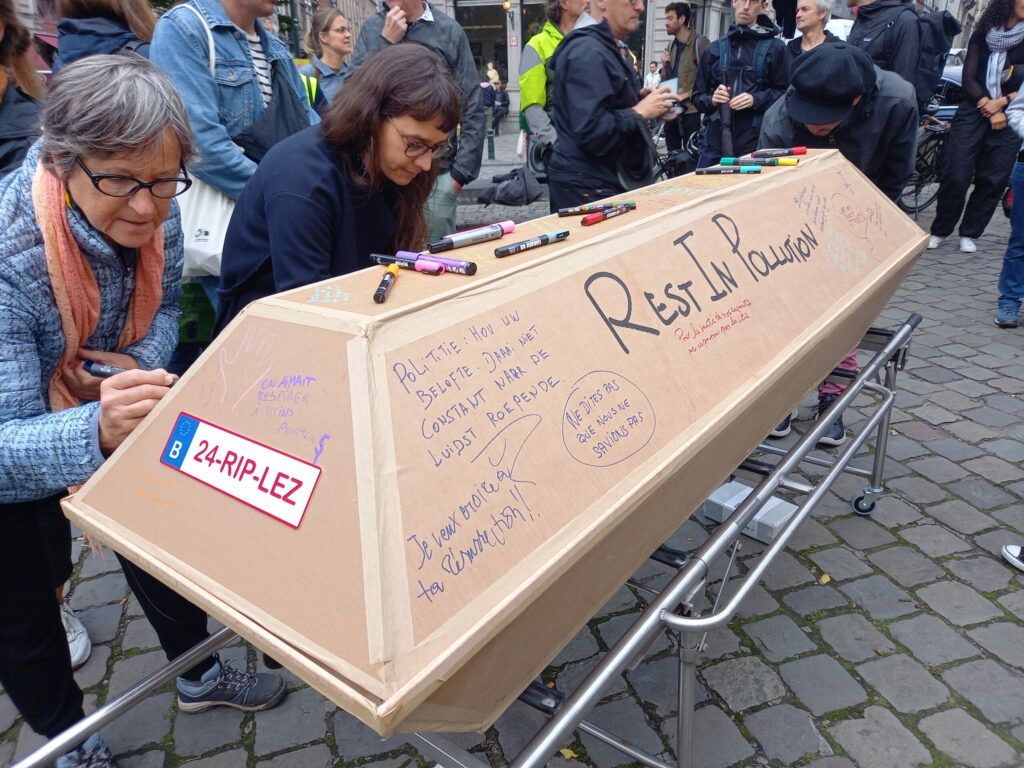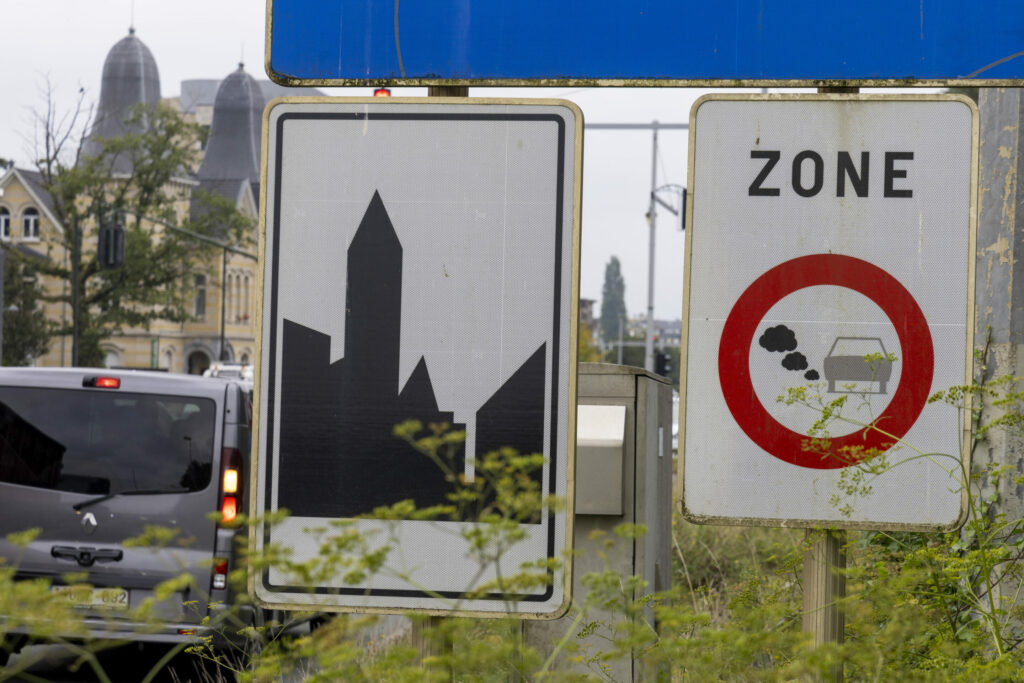The "standstill principle" on environmental protection is being violated if the Brussels-Capital Region delays the tightening of the Low Emission Zone (LEZ) by two years, warns the Council of State.
The proposed – and heavily-criticised – ordinance was submitted to ensure legal certainty and avoid disputes by postponing the ordinance of 17 October 2024, which postponed the tightening of the LEZ by two years – to 1 January 2027.
This tightening would ban Euro 5 diesel and Euro 2 petrol vehicles from January 2025, affecting 35,284 private and 8,512 company vehicles. These vehicles make up less than 10% of the car fleet in Brussels, but account for 40% of nitrogen emissions and therefore contribute significantly to the current air pollution.
Worsening air quality
In its opinion, the Council of State warns of a violation of the so-called "standstill principle" on environmental protection, which means that the quantity and quality of protected environments cannot be reduced.
The Council recommends "supplementing the proposal's explanatory statement with a description of the extent of the deterioration brought about by the proposal and, in case there is a significant deterioration compared to the existing legislation, with a reasonable justification for it."
It further asks for "not only a justification for postponing the planned phase from 2025, but also an explanation of how the progress in air quality and greenhouse emission reductions thereby envisaged can still be achieved through other measures."

Fictional burial ceremony of the LEZ by citizen's collective Bruxsel'AIR to denounce the proposal to postpone the next phase. Credit: Belga/Jean Van Driessche
For Groen (Flemish greens) party leader in the Brussels Parliament Stijn Bex, the opinion of the Council of State is particularly critical for the postponement of the LEZ. "Postponing the next phase of the LEZ by two years is not something that can be done just like that."
"For the sake of air quality and legal certainty, we call on the other groups in Parliament to at least limit the postponement of the LEZ to one year instead of two. Groen maintains that it is better to work with a deferral of fines without adjusting the regulatory framework."
Bex further pointed out that the impact on the air quality of Brussels residents should at least be calculated. "The legislator should also demonstrate how the air quality of Brussels residents will indeed be improved; none of that happened in the atmosphere of electoral bidding towards the municipal elections."
Opening the door to lawsuits
The proposal to postpone the LEZ was unexpectedly put on the table by Brussels Francophone liberal party MR, socialists PS and centrists Les Engagés (and later co-signed by Dutch-speaking liberals Open VLD) at the end of August.
It blew up the regional government formation, as Dutch-speaking formator Elke Van den Brandt (Groen) was not informed beforehand. As outgoing Brussels Mobility Minister, Van den Brandt won the election on the fact that her mobility policy focuses on cleaner air and fewer (polluting) cars, and called the unexpected proposal "a deep breach of trust."
Bex also warned that the scaling down of decided policies gives ammunition to environmental organisations and citizens' movements that want to go to the Constitutional Court for the air quality of Brussels residents.

